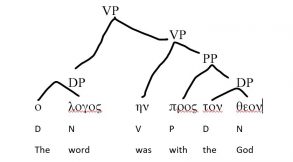The Grammars give us some interesting, if not contradictory insights concerning present imperatives.
In ΒΓΤΕ, the present imperative is described as “sharper command and are less courteous.”
Consider how some Koine grammars describe the present imperative: “μή with the present imperative forbids the continuance of the action;” (BGGNT 408). This analysis directly agrees with mine.
Summers, R., & Sawyer at 127: The present imperative denotes action in progress: λῦε αὐτόν (continue loosing him!) The aorist imperative conveys action which has not yet started: λῦσον αὐτόν (Loose him!).
Nunn at 32: The meaning of the Present Imperative. The Present tense in Greek in moods other than the Indicative denotes Continuous action, action In Progress, or Repeated action rather than action in present time.
Just as the Imperfect tense denotes a continued or repeated action in past time so the Present Imperative denotes a command or entreaty to continue to do an action, or to do it repeatedly.
A verb in the Imperative mood is negated by μή, and not by οὐ.
Nunn at 48: The difference in meaning between it and the Present Imperative is that while the Present Imperative denotes a command or entreaty to Continue to do an action, to do it Habitually, the Aorist Imperative denotes a command or entreaty simply to do an action Without any Regard to its continuance or frequency.
The verb used in the first is the Present Imperative of the verb δίδωμι “I give,” an irregular verb explained in lesson 32, the verb used in the second is the Aorist Imperative of the same verb.
Give us (keep on giving us) day by day our daily bread.
τὸν ἄρτον ἡμῶν τὸν ἐ̓πιούσιον δίδου ἡμῖν τὸ καθ᾽ ἡμέραν . Lk. 11:3.
Give to us this day our daily bread.
τὸν ἄρτον ἡμῶν τὸν ἐπιούσιον δὸς ἡμῖν σήμερον . Mt. 6:11.
The Present Imperative denotes a continuous act of giving—day after day. The Aorist Imperative denotes a single act of giving—for to-day.
Another good example is found in Jn 2:16:
Take these things hence (single action), do not continue to make my Father’s house a house of merchandise.
ἄ̓́ρατε ταῦτα ἐντεῦθεν, μὴ ποιεῖτε τὸν οἶκον τοῦ πατρός μου οἶκον ἐμπορίου.
Nunn at 100: The Present Imperative (not the Aorist) with μή may also be used to express a prohibition. The Present Imperative generally denotes a command to cease to do an action already begun, in accordance with the principle that the moods of the Present tense denote action in progress.
The Aorist Subjunctive generally denotes a command not to begin to do an action.
Thus, according to the above quotes, my theory (that the present imperative includes the author assuming that the action is ongoing) coincides with the comments of Nunn, Summer’s and Sawyer, and the BGGNT (Davis et.al) all quoted above.
#GreekBible#KoineGreek#VerbalAspect#New Testament Greek
Views: 194
